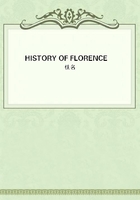
第131章
The Florentines during the war of Lombardy had not declared in favor of either party, or assisted the count either in defense of the Milanese or since; for he never having been in need had not pressingly requested it; and they only sent assistance to the Venetians after the rout at Caravaggio, in pursuance of the treaty. Count Francesco, standing now alone, and not knowing to whom else he could apply, was compelled to request immediate aid of the Florentines, publicly from the state, and privately from friends, particularly from Cosmo de'
Medici, with whom he had always maintained a steady friendship, and by whom he had constantly been faithfully advised and liberally supported. Nor did Cosmo abandon him in his extreme necessity, but supplied him generously from his own resources, and encouraged him to prosecute his design. He also wished the city publicly to assist him, but there were difficulties in the way. Neri di Gino Capponi, one of the most powerful citizens of Florence, thought it not to the advantage of the city, that the count should obtain Milan; and was of opinion that it would be more to the safety of Italy for him to ratify the peace than pursue the war. In the first place, he apprehended that the Milanese, through their anger against the count, would surrender themselves entirely to the Venetians, which would occasion the ruin of all. Supposing he should occupy Milan, it appeared to him that so great military superiority, combined with such an extent of territory, would be dangerous to themselves, and that if as count he was intolerable, he would become doubly so as duke. He therefore considered it better for the republic of Florence and for Italy, that the count should be content with his military reputation, and that Lombardy should be divided into two republics, which could never be united to injure others, and separately are unable to do so. To attain this he saw no better means than to refrain from aiding the count, and continuing in the former league with the Venetians. These reasonings were not satisfactory to Cosmo's friends, for they imagined that Neri had argued thus, not from a conviction of its advantage to the republic, but to prevent the count, as a friend of Cosmo, from becoming duke, apprehending that Cosmo would, in consequence of this, become too powerful.
Cosmo, in reply, pointed out, that to lend assistance to the count would be highly beneficial both to Italy and the republic; for it was unwise to imagine the Milanese could preserve their own liberty; for the nature of their community, their mode of life, and their hereditary feuds were opposed to every kind of civil government, so that it was necessary, either that the count should become duke of Milan, or the Venetians her lords. And surely under such circumstances, no one could doubt which would be most to their advantage, to have for their neighbor a powerful friend or a far more powerful foe. Neither need it be apprehended that the Milanese, while at war with the count, would submit to the Venetians; for the count had a stronger party in the city, and the Venetians had not, so that whenever they were unable to defend themselves as freemen, they would be more inclined to obey the count than the Venetians.
These diverse views kept the city long in suspense; but at length it was resolved to send ambassadors to the count to settle the terms of agreement, with instructions, that if they found him in such a condition as to give hopes of his ultimate success, they were to close with him, but, if otherwise, they were to draw out the time in diplomacy.
CHAPTER V
Prosecution of the war between the count and the Milanese--The Milanese reduced to extremity--The people rise against the magistrates--Milan surrenders to the count--League between the new duke of Milan and the Florentines, and between the king of Naples and the Venetians--Venetian and Neapolitan ambassadors at Florence --Answer of Cosmo de' Medici to the Venetian ambassador--Preparations of the Venetians and the king of Naples for the war--The Venetians excite disturbances in Bologna--Florence prepares for war--The emperor, Frederick III. at Florence--War in Lombardy between the duke of Milan and the Venetians--Ferrando, son of the king of Naples, marches into Tuscany against the Florentines.